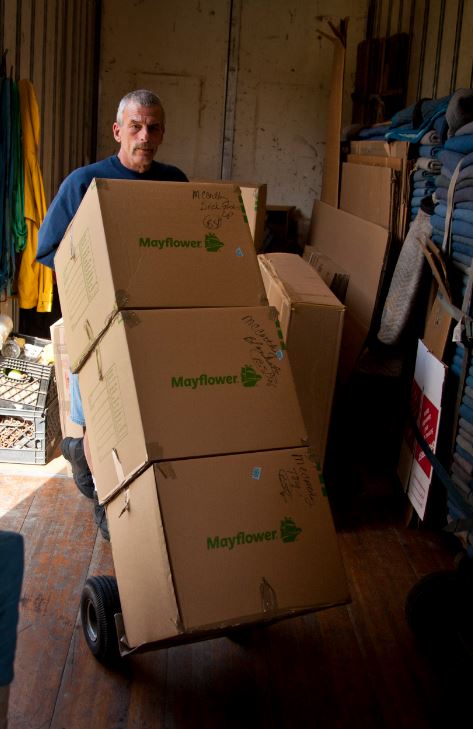Few people are aware that their removal company will take no responsibility or liability for the loss or damage of household goods while these goods are being loaded, unloaded and transported. In fact, when you sign a contract to hire them to handle your home removals, you are also signing a contract indemnifying them against any claims that you could make against them for loss or damage to your belongings.
So what happens if your goods are damaged or lost during the move? You will have to pay for the cost of repairs or replacement out of your own pocket. That is unless you are insured.
Domestic or home removals insurance is a short-term type of liability insurance policy that would cover you in the event of loss or damage to your goods while they are being relocated. This includes loss or damage that may occur if the removal van or truck is in a traffic accident. It also includes cover in the event that any or all of your items are stolen during transit. Items that are damaged due to incorrect packing or simply being dropped by the removal company should also be covered.
Short-term means that the insurance policy will only apply for the duration of the relocation. This should include the time that your household goods are in storage if this is necessary. If you only find out what items have been damaged days or even weeks after the move, it may be too late to claim from your insurance provider. It is recommended to check your goods upon arrival at their destination or as soon as possible.
Items that are placed in storage may require additional insurance against events such as fire or flood. If the storage facility burns down, your goods may not be covered for the loss under a regular household removal policy.
Where Can You Get Insurance For A Home Removal?
 Some household insurance policies make provision for moving house. If you currently have household insurance, read your policy document carefully to find out if you have coverage for relocation and what the policy covers. Alternatively, contact your insurance provider to get the information that you need.
Some household insurance policies make provision for moving house. If you currently have household insurance, read your policy document carefully to find out if you have coverage for relocation and what the policy covers. Alternatively, contact your insurance provider to get the information that you need.
Your home removal company may offer you the option to insure your goods during a move. These policies are normally not provided by the removal company but by a short-term insurance provider. If you take this option, make sure that you read the policy document carefully to make sure that you understand what you are covered for.
Alternatively, you can contact a variety of different insurance providers and compare their home removal insurance products and prices to get the best deal. This is the recommended route as you can find a policy that suits your unique relocation requirements.
Whichever option you take, there are a few factors to keep in mind to ensure that you get the best value for your money:
- Make sure that you take out an all-risk policy that covers you for all eventualities.
- The policy should provide cover whether damage or loss was caused due to negligence, purposeful actions or error on the part of the removal company.
- Check whether your total claim will be capped or limited to a certain amount as well as limitations that may be placed on claims for individual items.
- Make sure that you understand which events are not covered by the insurance policy.
- Find out if there is a co-payment or deductible if you claim and how this is calculated.
- Understand how the value of your goods relative to the amount you claim is calculated.
What Does Household Insurance For Removals Cost?
Unlike regular insurance, there is no monthly payment or premium for domestic removal insurance. You will need to pay a once-off premium or payment in order to receive cover. This premium is rather small when compared to other insurance policies and relative to the value that you will receive in the event that loss or damage does occur to your household goods. However, the rate can differ from one provider to another and may depend on a number of additional factors:
- The volume of goods being moved.
- Whether any of the items have a high estimated value such as a piano or antique furniture.
- The period over which the move will take place and whether storage may be necessary.
- If different modes of transport will be necessary to complete the move.
- Any other risk factors.
These and other factors are used to evaluate the value of the policy as well as the risk. The lower your risk and the value of your household goods, the less you are likely to pay for your cover. Make sure that you compare the value that you are likely to get in the event that you need to claim with the cost of the home removal insurance policy.


